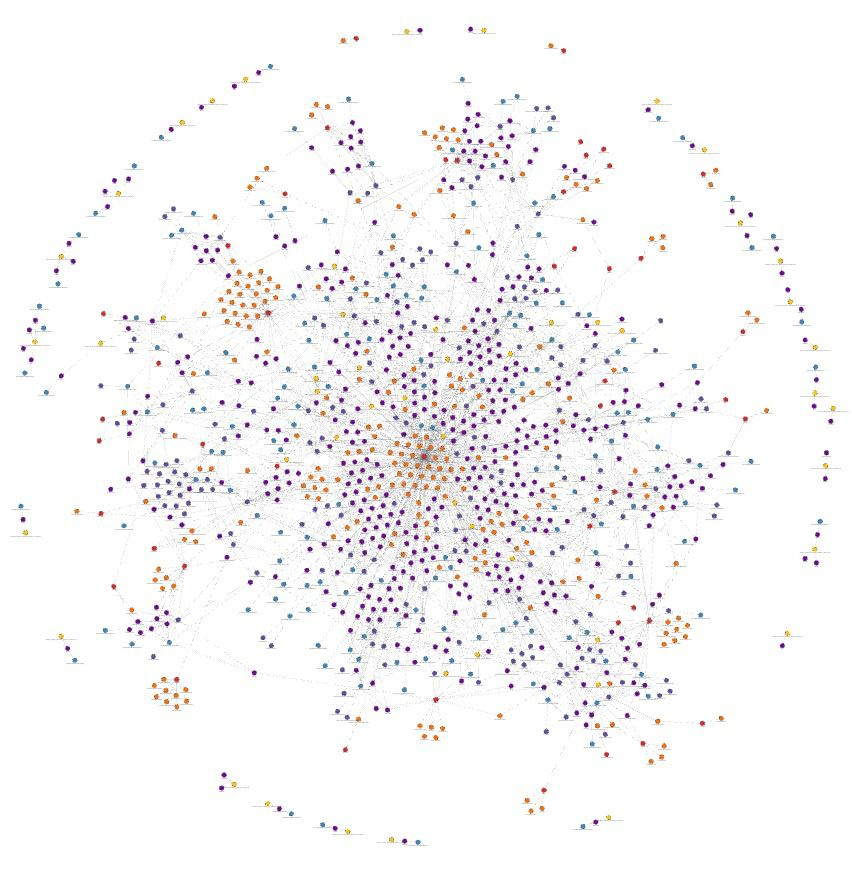This week I want to explore intelligence and knowledge in a stream of thought mix between people, companies and ideas that we’ve encountered lately. For this I’m trying a different, long-form format instead of the usual bullets and headlines. Let us know how you like it!
We’ve observed how access to intelligence has exploded in the last 1.5y, with broad access to cheap, reasonably helpful AI. It’s similar to how the printing press, public libraries and universities democratized access to knowledge (though it took a long time until they were accessible to everyone). Before that, knowledge was limited to certain hand-copied texts (often by religious scholars) and way before that, dialog through socratic teaching. How my grand-parents were taught (to learn medicine, swedes were required to know German as the latest books weren’t translated), is very different from how my parents acquired knowledge (rural areas had library buses, school was very liberal in the very socialist 70s of Sweden, university was free and open to anyone). And that in turn is very different to how I learnt things in high school, where we had access to the internet all day through school issued laptops and flipped-classrom style teaching. And yet, I learnt how to learn new things, very differently from how my son will. Arguably even more differently than the difference between me and my grand-parents.
Learning is one very human thing that hasn’t changed in the last 1000 years from a biological perspective of course. But what we learn, and the level of abstraction of what we learned has changed by orders of magnitude in the last 100 years. See this section in Chapter 2 from Range by David Epstein where he describes a Soviet sociology experiment interviewing farmers to identify implications of modernization of cognition. He asks one group who haven’t changed their way of life much in the last 1000 years things like below:
Q: All bears are white where there is always snow; in Zovaya Zemlya there is always snow; what color are the bears there?
A: I have seen only black bears and I do not talk of what I have not seen.
Q: What what do my words imply?
A: If a person has not been there he can not say anything on the basis of words. If a man was 60 or 80 and had seen a white bear there and told me about it, he could be believed.
The villagers didn’t perceive concepts in the same way we do today, or even a school-attending 1920’s person would. Will there be a similar leap of abstraction due to our changing information environment and access to instant knowledge? Can we accelerate it to better understand the world by closing the gap between the latent space and our own brain representation of that knowledge?
The internet has at least changed the entire dynamic of transmitting thought and learning, by enabling instant n-m communication through public fora and “knowledge” sharing as well as social media. We’re now exposed to way more opinions and thoughts than any other living person before us. And it’s going to go faster from here.
We’re entering a fundamentally new era of having a compressed, personalized version of all of digitized human knowledge in our pocket through LLMs. Granted, not telling you anything new here, but there are still leaps happening weekly in how we improve the interactions with this alien life-form. The sheer versatility of these tools have changed how we think about human intelligence, and how we think about discovering new things. Check out the 15th century version and the 21st century version of this article.
Back almost a year ago, I built chatkg.xyz in a few hours with cursor.so and some inspiration from Yohei Kajima, and connected with Chia (then at Pantera, now at WhyHow.ai) about knowledge graphs. We at inflection.xyz are exploring knowledge graphs in our path towards making sense of founders, companies and ideas with CAVI as a way of creating better outcomes, but also to be able to parse the information and understand our own data flows better. They are just fundamentally more intuitive interfaces for knowledge than Wiki’s or lexicons.

Brian over at Globe has built an amazing generative exploration tool to quickly understand new concepts.
Subconscious recently shut down their efforts to build the a multi-player knowledge management tool as they said they weren’t prepared and able to adapt to the role AI:
Today, if you want to amplify intelligence, you probably wouldn’t build a decentralized notes graph, you would go to work on personal AI.
Gordon is asking the right questions towards the end, alluding to generating notes/insights from notes and the related knowledge graphs instead of having a person painstakingly type text into a computer and click through a UI. Of course we shouldn’t have to actively model our ontological context every time we learn a new concept. People are lazy! Some of us really enjoy ordering and structuring knowledge, but 99.9% don’t and rather choose to use Apple Notes over Obsidian or such. I think this can and will change.
Our friends at Anytype are continuing to build, brick by brick, loop by loop, a fully user-owned, personal OS, with your individual knowledge context at the center of everything. The only way to get this right, is to build it from the ground up differently from existing infra. We don’t want or need another office suite or another meeting note taker.
I absolutely want and need a social, interactive web of knowledge that captures everything I know and experience, like a neutral observer looking over my shoulder into my brain. This can absolutely 10x my ability to learn new things, and manage more information and computational flows. It would free up my mind to do what it does uniquely well and what I enjoy doing with my brain. I don’t want this future if the observer is sharing my thoughts and actions with Meta/google/…, or China/NK/RU/AUKUS/…. The immediate usefulness of being able to offload memory and “simpler” mind tasks like navigation can quickly be annihilated if we can’t trust what our second brains are doing with the knowledge. They are our most intimate partners, and it should be an exclusive relationship. I’d prefer not to be in a polycule with Zuck, thank you…
Here are a couple of more interesting explorations into how we use knowledge and augment human intelligence that people are working on:
Mathi-AI - the interactive tutor for maths, physics, chemistry
1-bit LLMs could solve AI’s energy demands - actually the interesting piece isn’t in the headline here.
Learn Anything - making it easier for anyone to learn anything → this should be called grok
The generative webpage - why even have an internet connection when you can just generate the internet for you?
The untapped future - hackathon starting tomorrow on the tech tree leaves in the future





